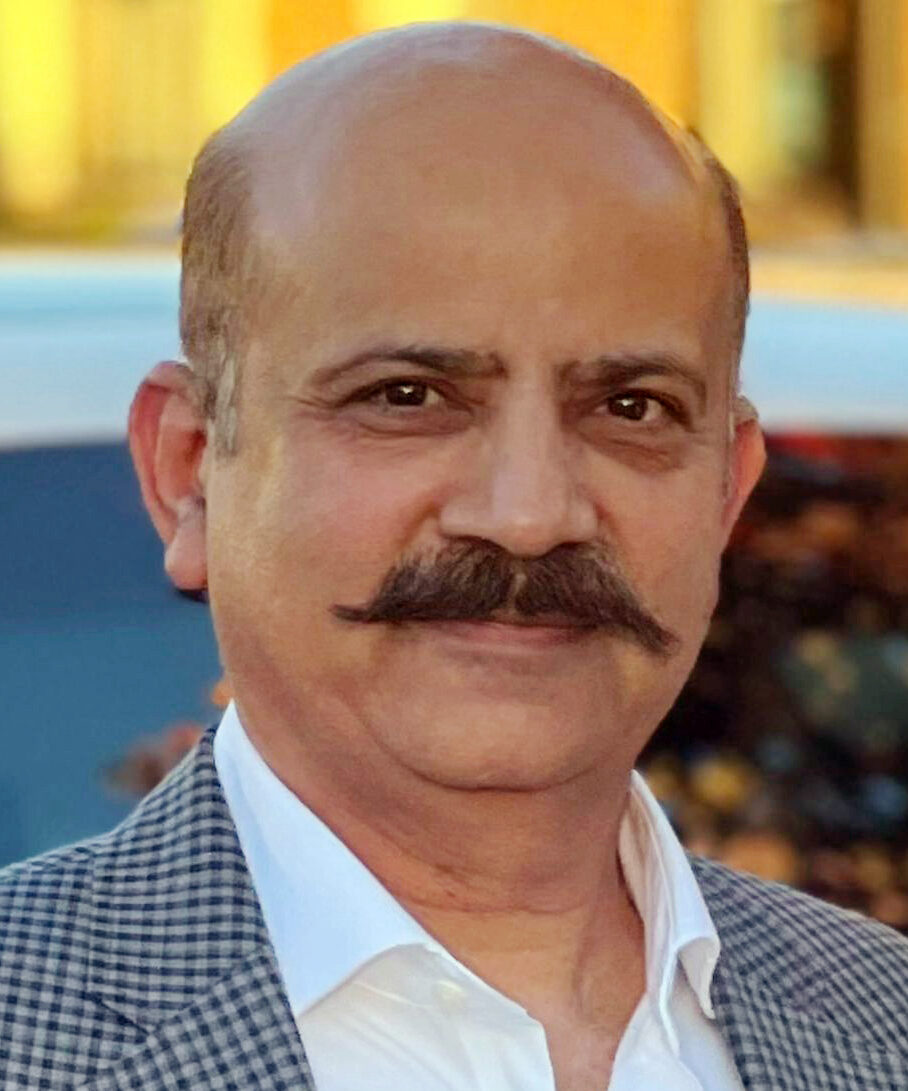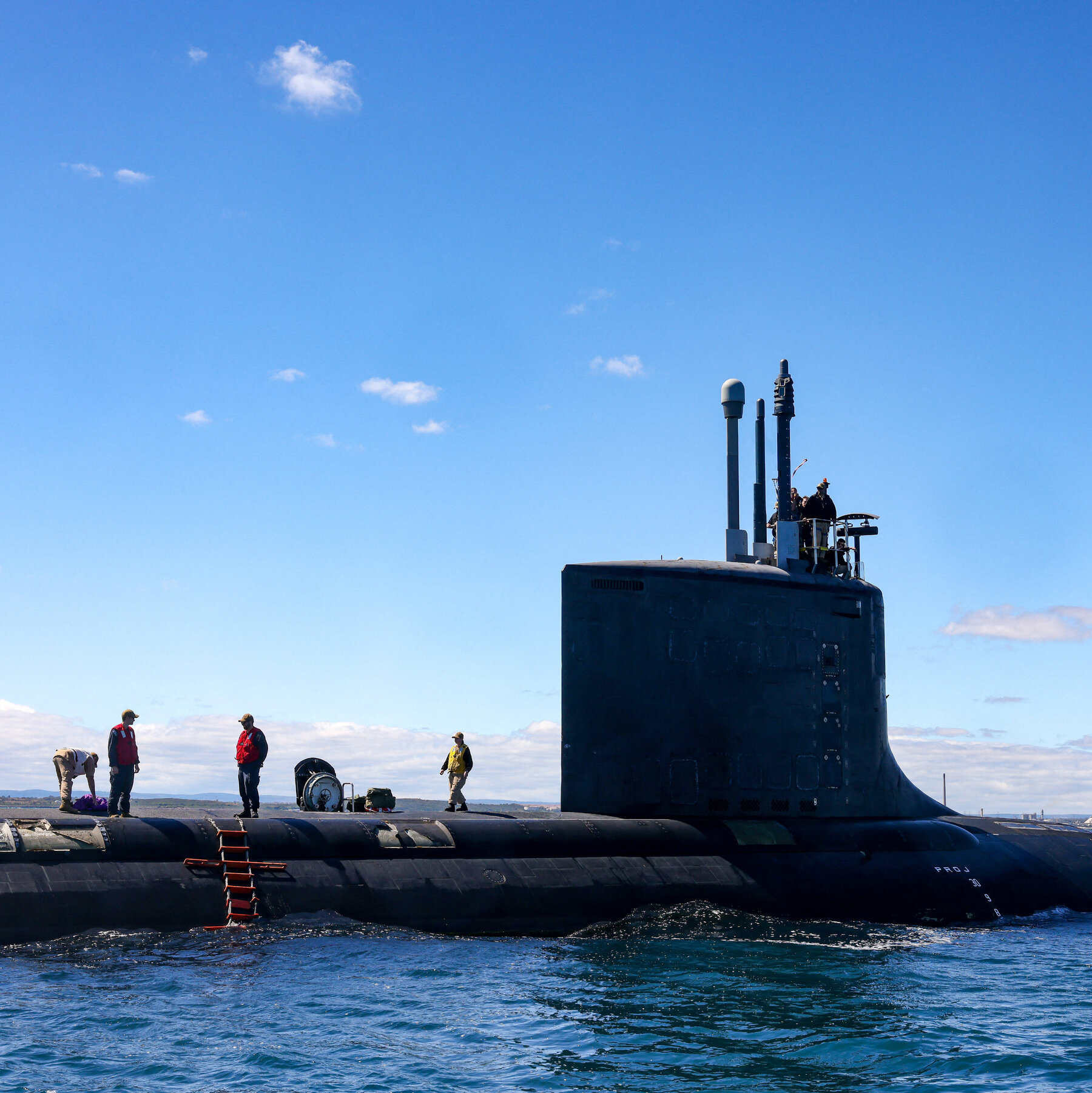Live Updates: Israel’s Cease-Fire Deal With Hamas to Take Effect Sunday

Israel’s cease-fire agreement with Hamas will go into effect on Sunday, according to Qatar’s Foreign Ministry and the office of Prime Minister Benjamin Netanyahu of Israel. A ministry spokesman said the truce would begin at 8:30 a.m. local time, setting up a reprieve in the 15-month war that has devastated the Gaza Strip.
Israel’s government approved the deal early Saturday after hours of deliberations.
The Israeli security cabinet approved the deal on Friday morning, two days after it was announced, and the full cabinet followed with final approval during a meeting that continued into the Jewish Sabbath. Israeli civilians will have a short window to file objections, but the courts are widely expected to allow the agreement to go forward.
In announcing the timing of the start of the cease-fire, Majed al-Ansari, a spokesman for Qatar’s Foreign Ministry, urged Gaza residents to be cautious. “Wait for directions from official sources,” he said in a statement. Qatar, alongside Egypt and the United States, mediated the cease-fire talks.
U.S. and other diplomats see the deal as the best chance to end the war, which began after Hamas led an attack on Israel on Oct. 7, 2023, killing 1,200 people and taking 250 hostage. Israel’s ensuing military campaign has leveled much of Gaza. Tens of thousands of Palestinians and hundreds of Israeli troops have been killed.
Under the terms of the deal, Israel and Hamas will observe a 42-day truce, during which Hamas will release 33 of the roughly 98 hostages it still holds. In exchange, hundreds of Palestinian prisoners are to be freed. Dozens of the hostages are believed to be dead.
During the truce, the deal calls for negotiations on an end to the war and the withdrawal of Israeli forces from Gaza. It is not clear how long the cease-fire will hold, and the negotiations are likely to be bitter and difficult. Mr. Netanyahu also faces internal rifts in his governing coalition over the deal.
Here’s what else to know:
-
Aid for Gaza: Desperately needed aid is expected to pour into Gaza once the cease-fire begins. Egypt, which shares a border with the enclave, was intensifying preparations on Friday to deliver assistance including food and tents, according to Al Qahera News, an Egyptian state broadcaster. However, an Israeli ban on the operation of UNRWA, the U.N. agency that is the main administrator of aid in the territory, is set to go into effect in about two weeks.
-
Strikes in Gaza: The Palestinian Civil Defense, an emergency service organization, said Friday that Israeli strikes had killed more than 100 people since the cease-fire deal was announced, a figure that could not be independently verified.
-
Israeli preparations: Health officials have been preparing isolated areas at hospitals where freed hostages can begin recuperating in privacy. Israel’s Health Ministry has drafted an extensive protocol for their psychological and physical treatment. In particular, there are concerns that they might be severely malnourished.
Image
Hundreds of Palestinians imprisoned by Israel will be released in the first phase of a cease-fire agreement that the Israeli cabinet approved after 15 months of war between Israel and Hamas in Gaza.
The Israeli justice ministry released a list of 95 prisoners on Friday evening that it said would be part of the first group of Palestinians to be released on Sunday. It said it would release more names after the full cabinet approval of the deal.
The total number of prisoners to be released and their identities were among the many contentious points involved in the negotiations for a deal. But the agreement says that in exchange for each hostage taken by Hamas during the attack on Israel on Oct. 7, 2023, Israel must free dozens of Palestinian prisoners, including some serving long sentences for attacks on Israelis.
During the last pause in the war in November 2023, Israel released 240 Palestinian prisoners and detainees in exchange for hostages. The majority of those released had not been convicted of a crime, and nearly half were under 18, including three girls. The oldest person released was a 64-year-old woman.
Even as Israel released Palestinians, it continued to imprison many more across Gaza, the occupied West Bank and East Jerusalem. Some of those released in the deal were later reimprisoned.
Israel said all of those released had been imprisoned for offenses related to its security, from throwing stones to more serious accusations like supporting terrorism and attempted murder. More than half of them had been prosecuted in Israeli military courts, which try Palestinians in the Israeli-occupied West Bank.
Nearly every Palestinian who is tried in the military courts is convicted. But many Palestinian political prisoners are never convicted nor even tried. Instead Israel detains them indefinitely without charges and based on secret evidence, under what is called administrative detention.
Image
International human rights groups have long criticized Israel’s widespread use of administrative detention as violating international law and suppressing Palestinian political activity and expression.
Israel says imprisoned Palestinians, who have included avowed senior militants convicted of brutal attacks, are treated in accordance with international standards.
Aaron Boxerman contributed reporting from Jerusalem.
Air-raid sirens wailed in central Israel, including in Tel Aviv in Jerusalem, after an attack from Yemen, the Israeli authorities said in a statement. Explosions could be heard in the skies over central Israel as aerial defenses tried to intercept projectile.
Video
transcript
transcript
Banning UNRWA Will Sabotage Cease-fire, Warns Agency Head
Philippe Lazzarini, the commissioner general of the U.N. agency for Palestine Refugees, described the repercussions if Israel followed through on a ban on UNRWA’s operations.
-
I also warned this morning that in less than two weeks, the Knesset legislation to end UNRWA’s operation in the occupied Palestinian territory will enter into force. Full implementation would be catastrophic in Gaza. It would massively weaken the international humanitarian response. And this will immeasurably worsen an already dire, catastrophic living condition. UNRWA’s personnel and services are also tightly woven into the social fabric of Gaza. The disintegration of the agency would intensify the breakdown of social order, so dismantling UNRWA now outside a political process would undermine the cease-fire agreement and sabotage Gaza’s recovery and political transition in the West Bank. The Palestinian Authority has stated clearly that it does not have the financial resources or the capacity to compensate for the loss of UNRWA’s services. We have a clear choice to do: Either we can allow UNRWA to implode before, because of the Knesset legislation and the suspension of funding of key donors. Or we can allow the agency to progressively conclude its mandate within a political framework.

The head of the United Nations agency for Palestinians on Friday welcomed a long-negotiated cease-fire deal for Gaza expected to go into effect on Sunday, but also warned of catastrophic consequences if Israel followed through on banning his agency’s work.
The official, Philippe Lazzarini, said the cease-fire deal would finally allow humanitarian agencies — including his own, the U.N.’s Relief and Works Agency for Palestine Refugees in the Near East, or UNRWA — to significantly scale up aid delivery and distribution, and help the recovery process for Gaza’s some two million people.
UNRWA is the core agency for aid into Gaza, where it operates shelters and schools and provides primary health care for the majority of the population. It is also a major employer: Many of its 13,000 staff members in the territory are Palestinians.
In October, the Israeli Parliament, the Knesset, adopted a bill barring UNRWA from operating in the territory of the state of Israel and prohibiting Israeli officials from having contact with the agency, which would cripple its ability to deliver aid or operate within Gaza.
Israeli officials have asserted that Hamas members had infiltrated UNRWA; two U.N. investigations concluded that fewer than a dozen employees had ties to Hamas, and their employment was terminated. The United States and Sweden have continued to suspend funding.
Mr. Lazzarini, speaking to reporters at U.N. headquarters in New York, warned of the ban’s consequences. “Full implementation will be catastrophic,” he said. “In Gaza, it will massively weaken the international humanitarian response,” which he said would “immeasurably worsen already catastrophic living conditions.”
Image
Mr. Lazzarini’s remarks came after he briefed the U.N. Security Council at a closed consultation on Friday morning. He told reporters that he had asked the Council to intervene to stop Israel from following through on the Knesset bill’s ban or risk chaos in Gaza. He said he also asked that the Council insist on a political path that clearly designated UNRWA as a provider of essential aid and to ensure that a financial crisis did not abruptly end the agency’s life- saving work.
UNRWA operates with the mandate of the U.N. General Assembly in Gaza, the West Bank and East Jerusalem, and in neighboring countries like Jordan and Syria, where Palestinian’s displaced in the founding of Israel have lived for decades. Israel has always had a contentious relationship with UNRWA, arguing for it to be dismantled.
Mr. Lazzarini said much was unclear about what would happen if the ban were fully put in place. He said UNRWA’s operations would have to halt in East Jerusalem, which Israeli claims, but that technically it could still work in Gaza, a Palestinian territory, and the West Bank, which is Palestinian but occupied by Israel. He said, however, that operations would be very challenging under the ban, which would block communications with Israeli officials on logistics and security.
The United Nations maintains that no other humanitarian agency currently working in Gaza has the operational capacity, infrastructure and staffing force to take over UNRWA’s work.
“These services in reality can only be transferred to a functioning state and government,” Mr. Lazzarini said.
![]()
Qasim Nauman
A time has been announced for the start of the cease-fire in Gaza on Sunday, according to the Foreign Ministry of Qatar, a mediator in the talks. It will begin at 8:30 a.m. local time, Majed al-Ansari, a spokesman for the ministry, said in a statement on Saturday.
Image
The Israeli authorities are making preparations to welcome home dozens of hostages held incommunicado by Hamas for over a year in Gaza, without knowing whether they will return starved, traumatized or dead.
Thirty-three hostages are supposed to be freed in the first phase of the Gaza cease-fire agreement between Israel and Hamas, in the first such major release since a weeklong cease-fire seven weeks into the war. Some families have caught glimpses of their loved ones in Hamas-directed hostage videos. But it is far from clear in what condition the captives will return.
At Israeli hospitals, health officials have been preparing isolated areas where the hostages can begin recuperating in privacy. Israel’s Health Ministry has drafted an extensive protocol for their psychological and physical treatment. There are particular concerns that they may be severely malnourished.
“The ones who were freed back then were already poorly nourished,” Hagar Mizrahi, a senior Israeli health ministry official, said of the hostages freed during the 2023 truce. “Imagine their situation now, after an additional 400 days. We are extremely worried about this.”
After Hamas led the Oct. 7, 2023, attack on Israel, killing about 1,200 people and capturing about 250 others, about 105 Israeli and foreign hostages were freed in the weeklong truce in November that year. A few were later released in Israeli military operations, and Israeli soldiers recovered the bodies of dozens of others.
But around 98 hostages remained in Gaza, dozens of whom are presumed dead by the Israeli authorities.
Of the women, older men and other hostages returning under the first phase of this cease-fire deal, many are believed to have been held in the militant group’s warren of tunnels in Gaza, conditions likely to leave physical and psychological scars.
Health officials have been poring over every piece of intelligence — including the hostage videos — in an effort to discern the hostages’ condition, Dr. Mizrahi said. A committee of officials that includes Dr. Mizrahi has determined that some were killed.
Israeli officials say the logistics of the release will be broadly similar to those during the previous cease-fire, when 105 hostages were released in exchange for 240 Palestinians jailed in Israel.
In that exchange, Hamas fighters handed over hostages — mostly women and children — to the International Committee of the Red Cross. The Red Cross’s workers ferried the captives from Gaza in a marked ambulance to Egypt before taking them to Israel.
At the border crossing, Israeli intelligence agents verified their identities. Around the same time, Israeli security officials released a specified group of Palestinian women and teenage prisoners.
This time, the Israeli authorities have established three reception points to receive the hostages along the Gaza border, according to an Israeli military official. Those will be staffed by Israeli soldiers, as well as doctors and psychologists, said the official, who spoke on condition of anonymity in accordance with protocol.
From there, the hostages will be taken to the Israeli hospitals that have been preparing to care for them, the official said.
The 105 hostages released in November 2023 came home after roughly 50 days in captivity in Gaza. They arrived in a country that had fundamentally changed; some learned only then about friends and loved ones who had been killed in the Hamas-led attack.
At first, officials aimed to reintegrate returning hostages as quickly as possible, according to Dr. Mizrahi. Now, the health authorities recommend that the hostages being released remain in the hospital for at least four days, if not longer, she said.
In the meantime, the hostages’ family members — some of whom themselves survived captivity — can only wait.
“Last time, we saw the Red Cross transferring the hostages, and some of them were running to the relatives, hugging them,” said Einat Yehene, a clinical psychologist working with the Hostage Families Forum, an advocacy group. “It’s not going to be easy and similar this time, given the physical and the emotional conditions we expect.”





